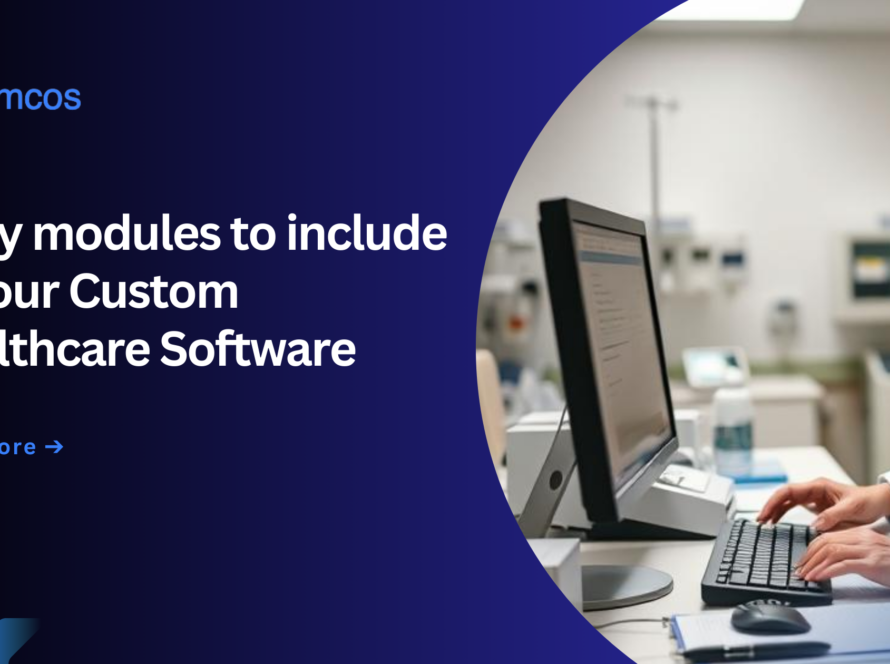The healthcare industry is drowning in an unprecedented wave of information. So, what is the role of agentic AI ns How Agentic AI is Transforming Healthcare? By the end of 2025, our world is estimated to generate 180 zettabytes data, contributing more than one third of this massive digital landscape with healthcare. The most shocking revelation is that only 3% of this healthcare data is effectively used. This Stark Statistic today highlights an important challenge before medical professionals: how a heavy flood of information should be converted into meaningful, actionable insights.
Knowledge Explosion at a high pace
Medical knowledge is now developing at a accelerating speed, it is doubled every 73 days in important specialties like oncology, cardiology and neurology. Physicians find themselves in a rapid complex environment, manually navigate through complex datasets, medical records and research conclusions. Cognitive burden is immense, doctors with countless hours of time testing results, researching patient history and making important decisions under rapid time pressure.
Table of Contents
What is Agentic AI in Healthcare?
Agentic AI represents a revolutionary approach to managing health care information. Unlike traditional automated systems, these intelligent agents can process, analyze and organize medical information with unprecedented speed and accuracy. Technology goes beyond simple automation, provides adaptive, intelligent support that can take complex decisions and streamlined medical workflows.
Major areas of Transformation in Healthcare
1. Prison oncology diagnostics
Agentic AI in Healthcare is revolutionizing cancer care by analyzing complex medical imaging and genetic data. In oncology, AI can compare patient-specific tumor markers against millions of research papers and treatment databases in AI seconds. For example, an AI system may identify rare genetic mutations, suggest personal treatment protocols, and predict potential drug responses based on broad genetic profiling. This approach changes how oncologists develop targeted treatment plans, potentially increase the survival rate and reduce unnecessary treatments.
2. Heart Risk Management
The cardiovascular care is experiencing a significant change through the AI-propelled future analytics. By analyzing extensive patient data, including ECG reading, genetic history, lifestyle factor and longitudinal health records – AI can predict potential cardiovascular events with unprecedented accuracy. These systems can identify high -risk patients before traditional screening methods, allowing active intervention and individual preventive strategies.
3. Neurological disease progression tracking
In neurology, agentic AI is emerging as a powerful tool to track and predict the disease, especially in complex conditions such as Alzheimer’s and Parkinson’s. AI can analyze microscopic changes in patient data, including the results of cognitive testing, brain imaging, genetic markers and patient-reported symptoms. By creating a comprehensive future model, these systems help the neurologist develop more fine, individual treatment approaches and monitor the disease trajectory with more accuracy.
4. Infectious disease management and outbreak prediction
During global health challenges, agent AI displays notable abilities in monitoring and predicting infectious disease spread. By analyzing global health data, travel patterns, genetic mutation rates and local health reports, these systems can provide initial warning signals for potential outbreaks. During the Covid-19 epidemic, similar AI models helped track virus mutations, predict transmission rates, and support vaccine development strategies.
5. Care coordination
Traditionally fragmented medical systems now find a powerful integrated solution. Agent AI in Healthcare collects and organize data from many sources, predict high -risk patients, which require immediate attention, and automate communication between medical teams. This approach dramatically reduces hospital readmission and overall patients improve the results.
6. Prior Authorization
The notorious complex pre -authority process is streamlined through AI intervention. These intelligent system can assess resource usage, check the eligibility criteria, and reduce the review time up by 40%. Once the day it takes, it can now be completed in seconds, delay in approval can be reduced and the patient’s despair can be reduced.
7. Electronic health record management
The management of the patient record becomes more dramatically more efficient with the agent AI. Technology can consolidate data from many sources, automate regular updates, ensure record accuracy, and improve the difference between various medical platforms. Important information is flagged, discrepancies are highlighted, and administrative charge is significantly reduced.
8. Individual pediatric care
In pediatric medicine, agentic AI is changing how doctors see complex childhood disorders. By analyzing complex developmental data, genetic information and broader health history, these systems can identify early signs of developmental disorders, predict potential health risks, and suggest personal intervention strategies. This approach is especially revolutionary in management of conditions such as autism spectrum disorder, where early identity can significantly improve long -term results.
Human- Agentic AI in Healthcare cooperation
It is important to understand that the agent is not about changing the health professionals, but to empower them. Technology acts as a wise assistant, handling complex data analysis and provides insight that will be impossible to generate through manual processing. Human expertise remains in the core, AI serves as a powerful accessories that enhances decision making capabilities.
Ethical thought and future approach
As the agent AI continues to develop, the healthcare system will have to navigate complex moral ideas. Patient data privacy, algorithm bias, and transparent AI decision -making processes are important challenges. The future of healthcare lies in developing AI systems which are not only technically advanced, but also morally strong and patient-centered.
Agentic AI in Healthcare – A new frontier in medical intelligence
Agent AI represents more than a technical success – it is a fundamental reunion of health care distribution. By changing how medical information is processed, analyzed and implemented, we are creating a more accurate, future and personal healthcare ecosystem. Promise is clear: better data management better patient care, more accurate diagnosis, and eventually, health results improve.

How does Himcos helps?
Himcos is the perfect Agentic AI model development partner for your care setting or digital healthcare business. With our solid expertise in developing various healthcare based models using Machine Learning(ML) and Natural Language Processing (NLP), our expert team knows the ins and outs of the healthcare workflows to develop products and services that work completely inclined as per your business expectations.



